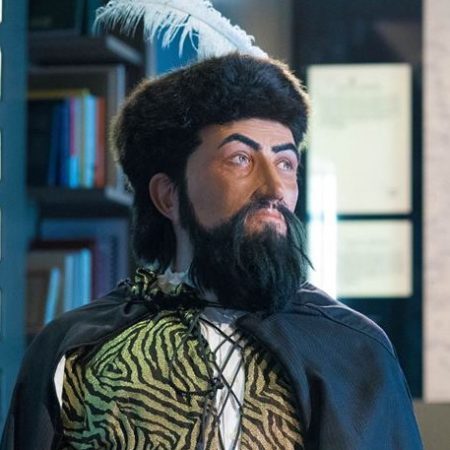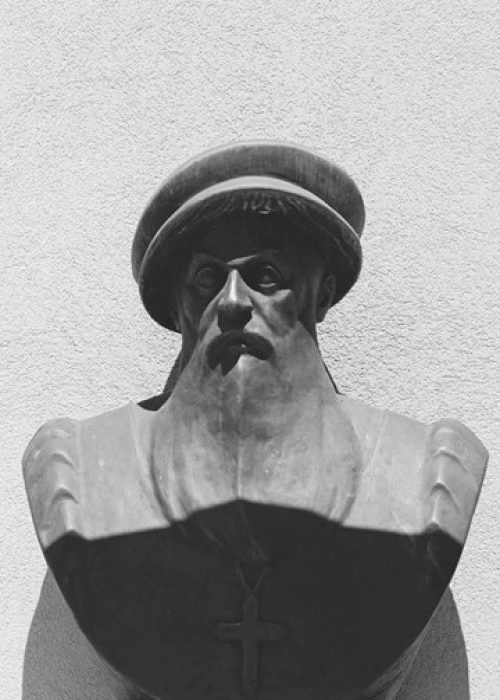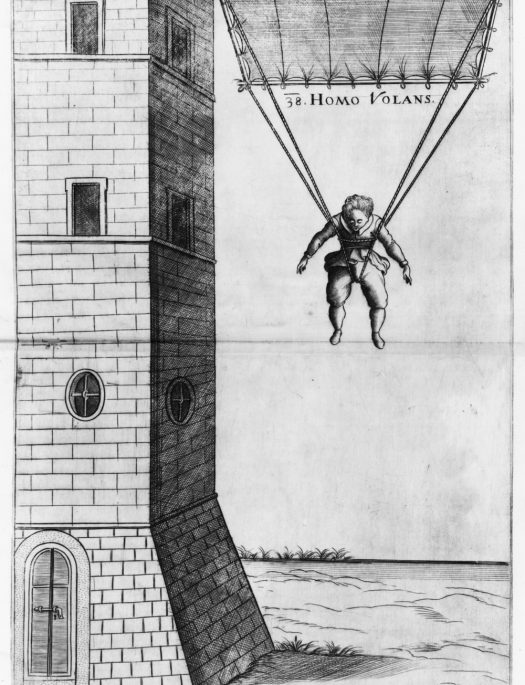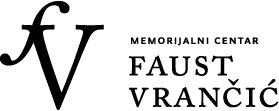About Faust
1551 (Šibenik) - 1617 (Venice)

Faust's life
Faust Vrančić was born in 1551 in Šibenik in the noble family Vrančić, originally old Bosnian nobility. The Family moved to Šibenik in the 14th century and was quickly established in the city, government, but also in the high politics of the Croatian-Hungarian kingdom,mostly due to the strong relations with Statilić and Berislavić families.
Faust spent the first ten years of his life between Šibenik and a mansion on the island of Prvić, where his family had been spending summer months far from the city noise and heat, and occasionally escaping from the plague that had hit Šibenik several times. Island of Prvić left a great mark on the young Faust. He felt nostalgic to his home-country throughout his life and had an aspiration to die on it. But since he got ill in Venice, he died there. From there, his body was transported by boat, first to the Cathedral of St. James
in Šibenik, whose glory he had spread in the world, respected it as a pearl of his native homeland in his famous Machinae Novae. In his honor, Ivan Tomko Mrnavić held a posthumous speech after which Faust’s body was transported on the island of his childhood. By his explicit wish, Faust’s body, together with one copy of each of his books, was buried in the parish church of St. Mary of of Grace in Prvić Luka “in the bleak soil among the dead bodies of laborers, so that at least he could happily achieve what he could not for his lifetime”
Somewhere at the age of 10, Faust leaves his hometown where he has gained an initial classical education, and goes to Pressburg (today’s Bratislava) to his uncle Antun, the diplomat and the Bishop of Eger, who in time has come to the position of archbishop and the Emperor’s Governor of Hungary. At that time, as Mihovil Vrančić (Faust’s father) wrote to his brother Antun, Faust is a “lively-spirited child, possessing a beautiful and truly noble appearance; he is not unreasonable no excessively childish, it seems that he has a significant future ahead of him…” and asks him to take care of him so that “he might not absorb these savage customs in his childhood, but instead from an early age acquire a purer teaching and learn languages.” His uncle supports and finances Faust’s further education and enrolls him at the famous University of Padua where Faust studies law and philosophy. As part of the study of philosophy, he studied mathematics and natural science – the forerunner of modern physics – which is important for understanding the scientific basis for the creation of his inventions. When he graduated from university, 22 years old Faust goes to his uncle but shortly after his return, Antun Vrančić dies. After that he stayed for a while in Rome and was admitted to the Croatian brotherhood of St. Jerome. Soon after, he married to Maria Zar / Zarensis, with whom he had a daughter Alba Rosa and a son who died very young.

In 1579 he became the military commander of the town of Veszprem and the administrator of the bishopric estates. It is assumed that thanks to this experience he received first incentives and ideas for designing technical projects and solutions. He stayed there for two years to become secretary of the Roman-German Emperor and Croatian-Hungarian King Rudolf II. Habsburg in Prague in 1581. Rudolf II, the patron of art and science, in love with astronomy, astrology, and alchemy, gathered the greatest minds of that time, which had a great impact on Faust’s work. In 1594, a few months after the battle of Sisak, and his personal loss – the death of his wife, he left the service of Secretary Rudolf II. Having left Prague, he stayed for a while in Italy and Dalmatia when in 1598 Rudolf IIcalled him in service again and named him a Titular Bishop of Csanad a governor of Hungary and Transylvania. Various sources refer to two years as possible years of Faust’s ordination – 1594 and 1600. In 1605 Faust moved to Rome, renounced his bishopric titles and joined Church Order of Barnabites in 1608. The last ten years of his life he is mostly devoted to writing and publishing his works.

Faust's achievements
Faust Vrančić is great Croatian inventor and one of our most versatile humanists – polyhistor. He contributed accomplishments from many areas. He was a lawyer, philosopher, historian, lexicographer, inventor, hagiographer and theologian. He also carried out very demanding political functions of the Emperor Secretariat, the Bishop and royal governor of Hungary and Transylvania. He was a family man – husband and father, but also a priest dedicated to contemplation and the development of Christian virtues, making his life path very meaningful and interesting.
His Dictionary of the Five Most Noble European languages – Latin, Italian, German, Dalmatian and Hungarian – is the first Croatian and the first Hungarian dictionary in history. It was published in Venice in 1595 and it is considered as the foundation of Croatian lexicography.
In his collection of inventions Machinae Novae or New Machines, Faust describes 56 different devices and technical constructions in 49 large formats of chalcography. In addition to its most famous invention – parachute, two groups of projects – bridges and mills – occupy a prominent place.
Three of Faust’s bridges are of great importance because they appear for the first time in technical literature: Bronze bridge- the first idea of a metal bridge in the history of technology, a Bridge with one rope – the forerunner of modern cable car and the Iron bridge – the first idea of chain suspension bridge in history. Faust describes 18 types of mills as well. They are driven by wind, water mass, sea currents, human or animal propulsion. Faust introduces innovations into the existing idea of a mill: vertical shaft, movable wings, the forerunner of the turbine. Other inventions are also very useful in everyday life: saws, presses, water pumps, clocks, and it is interesting that Faust is also inventor of the first shock absorber in the history of technology. For some of his inventions, Faust had patent privileges received from a Venetian Doge. That suggest that he exploited his inventions in Dalmatia, most probably on one of the family estates, and that he was selling licenses for patents to others. All of the above makes him a successful entrepreneur as well.
He is the author of historiographical and political discussions, a part of the field of philosophical disciplines – Logica Nova and Ethica Christiana. He also wrote one book in his mother tongue – Život nikoliko izabranih divic – a collection of biographies of 12 early Christian martyrs devoted to nuns noblewomen of the Benedictine convent of Holy Salvation in Šibenik. His IllyricaHistoria is still in the manuscript and unpublished at National and University Library in Zagreb.
Memorial center
"Faust Vrančić"
Ulica I 1a
22233 Prvić Luka
island of Prvić
All rights reserved Memorijalni
centar Faust Vrančić 2019.
NEWSLETTER
Sign up for our newsletter
and stay in progress with our
latest events.
SIGN UP
FOLLOW US
CONTACT
- +385 (0)91 524 0739
- +385 (0)22 448-128
- ravnateljica@mc-faustvrancic.com

